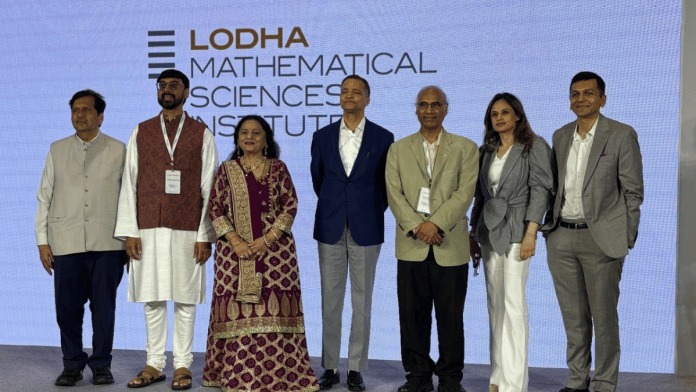India has taken a bold leap in math and science research with the launch of the Lodha Mathematical Sciences Institute (LMSI), India’s first privately funded mathematics institute, built with a massive ₹20,000 crore endowment from the Lodha Foundation.
Set up in Mumbai, LMSI is entirely devoted to post-doctoral mathematical research, making it a first-of-its-kind centre in India’s academic landscape. Its focus? Not just high-level theory, but systemic transformation, starting with teacher development, cutting-edge research, and deep talent discovery across the country.

“India has always been a mathematical powerhouse,” said Abhishek Lodha, CEO of Lodha Group. “But to reclaim our global edge, we need to invest in institutions that fuel original thinking. That’s what LMSI stands for — a school not for profit, but for national progress.”
Led by Dr. V Kumar Murthy, former head of Canada’s prestigious Fields Institute, LMSI will start by mapping and mentoring India’s best mathematical minds. “We’re building a deep grassroots network,” said Murthy. “We’re beginning with teachers — the real force multipliers — and nurturing ten of India’s top number theorists to lead the charge.”
Fields medallist Manjul Bhargava, who sits on the institute’s Scientific Advisory Council, said LMSI’s vision aligns with what Indian math desperately needs: playful, creative exploration over memorised formulas. “Classrooms must be experimental, not mechanical,” Bhargava said. “India must fall back in love with math as a language of discovery.”
Also on the advisory panel is economist Nachiket Mor, who highlighted India’s need to create its own mathematical frameworks: “Western economic models often collapse in Indian conditions. That makes it essential for us to build our own intellectual tools.”
According to the Lodha Foundation, LMSI will be completely free of cost for scholars, allowing India’s brightest minds, regardless of background, to focus solely on knowledge creation.
In its first phase, LMSI aims to build a nationwide system of mentorship, research collaborations, and talent spotting, reaching into schools, universities, and professional circles. By December 2026, it will host the first-ever Indian Congress of Mathematicians, designed to showcase Indian-origin talent from around the world.
“This is not just an institute, it’s a national investment,” said Mangal Prabhat Lodha, Maharashtra’s Cabinet Minister. “India gave the world zero. Now it’s time we give the world new math.”
